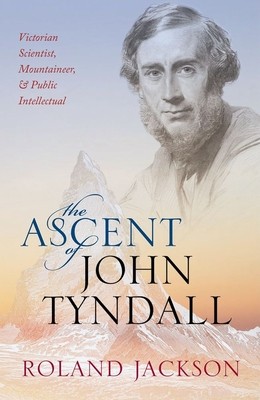
- We will send in 10–14 business days.
- Author: Roland Jackson
- Publisher: Oxford University Press, USA
- Year: 2018
- ISBN-10: 0198788959
- ISBN-13: 9780198788959
- Format: 16.3 x 23.6 x 5.1 cm, kieti viršeliai
- Language: English
- SAVE -10% with code: EXTRA
Reviews
Description
Rising from a humble background in rural southern Ireland, John Tyndall became one of the foremost physicists, communicators of science, and polemicists in mid-Victorian Britain. In science, he is known for his important work in meteorology, climate science, magnetism, acoustics, and bacteriology. His discoveries include the physical basis of the warming of the Earth's atmosphere (the basis of the greenhouse effect), and establishing why the sky is blue. But he was also a leading communicator of science, drawing great crowds to his lectures at the Royal Institution, while also playing an active role in the Royal Society. Tyndall moved in the highest social and intellectual circles. A friend of Tennyson and Carlyle, as well as Michael Faraday and Thomas Huxley, Tyndall was one of the most visible advocates of a scientific world view as tensions grew between developing scientific knowledge and theology. He was an active and often controversial commentator, through letters, essays,
speeches, and debates, on the scientific, political, and social issues of the day, with strongly stated views on Ireland, religion, race, and the role of women. Widely read in America, his lecture tour there in 1872-73 was a great success.
EXTRA 10 % discount with code: EXTRA
The promotion ends in 21d.04:18:13
The discount code is valid when purchasing from 10 €. Discounts do not stack.
- Author: Roland Jackson
- Publisher: Oxford University Press, USA
- Year: 2018
- ISBN-10: 0198788959
- ISBN-13: 9780198788959
- Format: 16.3 x 23.6 x 5.1 cm, kieti viršeliai
- Language: English English
Rising from a humble background in rural southern Ireland, John Tyndall became one of the foremost physicists, communicators of science, and polemicists in mid-Victorian Britain. In science, he is known for his important work in meteorology, climate science, magnetism, acoustics, and bacteriology. His discoveries include the physical basis of the warming of the Earth's atmosphere (the basis of the greenhouse effect), and establishing why the sky is blue. But he was also a leading communicator of science, drawing great crowds to his lectures at the Royal Institution, while also playing an active role in the Royal Society. Tyndall moved in the highest social and intellectual circles. A friend of Tennyson and Carlyle, as well as Michael Faraday and Thomas Huxley, Tyndall was one of the most visible advocates of a scientific world view as tensions grew between developing scientific knowledge and theology. He was an active and often controversial commentator, through letters, essays,
speeches, and debates, on the scientific, political, and social issues of the day, with strongly stated views on Ireland, religion, race, and the role of women. Widely read in America, his lecture tour there in 1872-73 was a great success.


Reviews